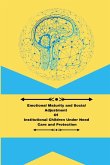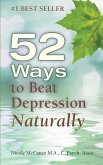Postpartum depression is a significant health issue that has affected over 10% of women worldwide. However, it has not received the attention it deserves, and many women continue to suffer in silence. Certain risk factors are indicative of postpartum depression. Some include a history of depression and a lack of a support system. Others include weight gain, breastfeeding, and physical/emotional abuse. However, research on these is limited. Thus, this research aimed to investigate the effect of breastfeeding, weight gain, and abuse on postpartum depression in women between 18 and 40+. This cross-sectional study used secondary data from the Pregnancy Risk Assessment Monitoring Systems Phase 8 of the Centers for Disease Control and Prevention. The theoretical framework for this study was Bronfenbrenner's social-ecological model, and the data analysis was done using logistic regression analysis. The results indicated that weight gain in women 18-29 years old affected postpartum depression (p<0.05), while in women 30-40 years old, there was no effect (p>0.05). For breastfeeding, the results showed that exclusive breastfeeding for 6 months or less did not affect postpartum depression (p>0.05), but for 9 months, there was an effect (p<0.05), while during pregnancy, physical/emotional abuse in women 18-40+ by a partner, postpartum depression may result (p<0.05). The results obtained from this study may help develop intervention measures targeted at these risk factors, thus assisting in the early detection of postpartum depression in women. Also, this research contributes to the existing body of scholarly knowledge of postpartum depression. This study hopes to contribute to positive social change by providing possible evidence for public health intervention to reduce postpartum depression in women.
Hinweis: Dieser Artikel kann nur an eine deutsche Lieferadresse ausgeliefert werden.
Hinweis: Dieser Artikel kann nur an eine deutsche Lieferadresse ausgeliefert werden.








